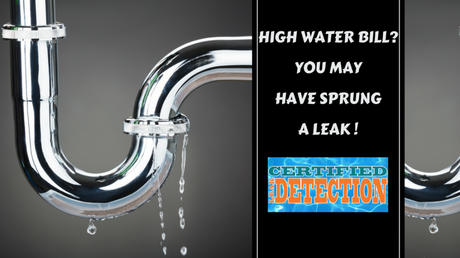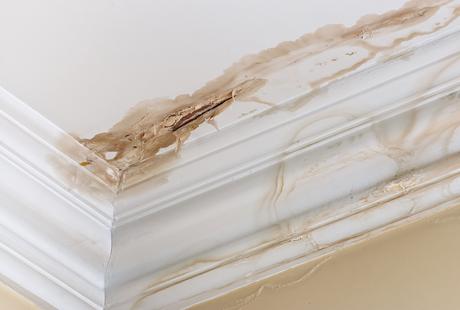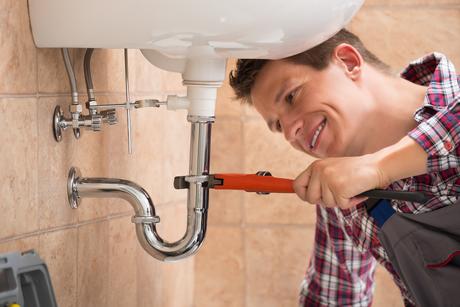
Are you getting an unusually high water bill? A spike in your average water bill should be a cause of concern for every homeowner. If you are using water the same as before and still your water bill is high, then there could be a leak somewhere in the house. Leaks – both big and small – can increase your water bill substantially. Leaks not only increase your water bill, but can cause property damage that will ultimately be even more expensive to repair.
In addition to the personal expense of water leaks, conserving this vital natural resource is of utmost importance. Of the total water available, only 3% is fresh, and just around 1% of freshwater is fit for human consumption – reason enough to conserve water whenever possible
Where is the water leaking from?

An average family of four uses around 4,000-5,000 gallons of water each month. Typically, the consumption of water increases in summer due to extra use in gardening, lawn irrigation and swimming pools. But when your water bill increases without any obvious reason, a leak could be the cause.
Some leaks are easy to detect because they’re visible. However, there are several types of leaks – such as a sewer leak or other underground plumbing leaks – which are hard to locate, and you have to rely on other kinds of evidence to find them. For example, an increase in your water bill along with a wet spot in your yard could be a sign of a sewer leak. The U.S. Virgin Islands Water and Power Authority (WAPA) offers an informative guide on potential causes of high water bills (don’t worry – the advice also applies to Central Florida homes).
Also, WikiHow provides useful instructions on how to find different types of water leaks, including the following:
- Toilet leak – Remove the tank top and listen for a hissing sound. If you don’t hear a sound, you can add a few drops of food color to the tank and wait. Color appearing in the bowl indicates a leak in the flapper valve at the bottom of the tank.
- Hot water tank leak – Check the pressure relief valve for a leak. At times this valve starts leaking without your knowledge. If the leak is not visible, listen for a hissing sound, which indicates a leak.
- Meter line leak – Check the line that comes from the water meter to your house. If possible, close the shut-off valve, then check the meter. If it is still running, there is a leak between the meter and house.
- Hose bib –Place the metal tip of a large screwdriver on the metal part of the hose bib. Then put your thumb knuckle on the top of the screwdriver, and then take your knuckle close to your ear. If there’s a leak, you’ll hear a sound.
Rather than relying on your senses, however, you can use technology to your advantage. A home leak detector will detect a leak immediately and send an alert on your smartphone.
Reviewed – part of the USA Today network – rounded up the best home water leak detectors of 2018:
- Honeywell Lyric Wi-Fi Water Leak and Freeze Detector –Offers easy setup, a solid app, temperature and humidity readings, and an optional cord sensor attachment that expands the detection area up to 150 feet.
- Roost Smart Water Leak and Freeze Detector – Good performance at a good value.
- LeakSMART Sensor – Best suited for those living in a flood-prone area.
- WallyHome Starter Kit – Offers multi-function sensors that can detect leaks and also acts as door/window sensors.
How to conserve water at home

There are many ways to incorporate water-saving measures into your daily life – from reducing the size of your yard and using native plants to cutting back on the length of your showers.
Care2 offers 20 ways to conserve water at home, including:
- Turn off the tap while brushing your teeth.
- Install water-saving fixtures like aerated faucets, low-flow toilets and efficient showerheads.
- Wait until the dishwasher is full before using – also wait until you have a full load of laundry before using the washing machine.
- Water outdoor plants in the morning to prevent evaporation.
- Repair leaks as soon as possible.
If you suspect trouble, Certified Leak Detection is experienced in leak detection and repair for Orlando, Longwood, Lake Mary, Sanford, Kissimmee, Clermont and Winter Springs. Trusted by homeowners throughout Central Florida, our team is ready to answer your call. Contact us for quick, reliable service.

